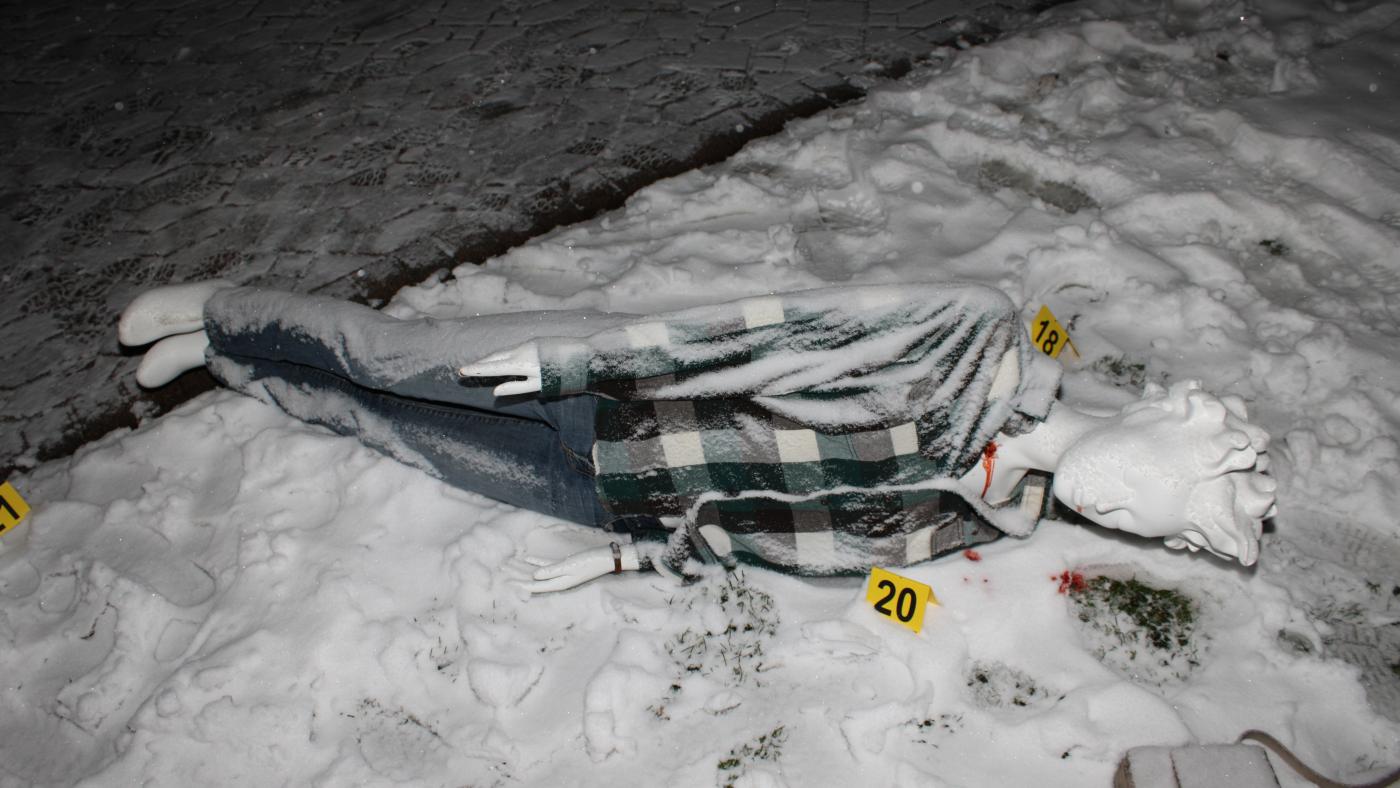Unveiling The Mysteries: Crime Scene Photos Dede
Crime scene photos have a unique ability to tell stories that words often cannot. These images capture the raw reality of crime, revealing the aftermath of tragic events and the intricate details that lead to investigations. In particular, the case of Crime Scene Photos Dede has sparked intrigue and debate among enthusiasts of true crime and forensic photography. As these photographs circulate, they raise questions about ethics, privacy, and the impact of such imagery on society.
Through the lens of crime scene photos, we gain insight into the investigative process and the emotions that surround violent crimes. Each photograph serves as a silent witness to the events that transpired, capturing crucial evidence that may help law enforcement unravel the complexities of a case. The allure of Crime Scene Photos Dede lies not only in the visual impact but also in the narratives they weave, drawing us into a world where justice and tragedy collide.
As we explore the story behind Crime Scene Photos Dede, we delve into the intersection of art, crime, and ethics. What compels people to seek out these images? What do they reveal about the human experience? The following sections will answer these questions while providing a comprehensive look at the implications of such powerful imagery.
What is the Background of Crime Scene Photos Dede?
Crime Scene Photos Dede refers to a collection of photographs associated with a specific criminal case that gained notoriety online. These images emerged from a series of incidents that captivated public attention and raised ethical concerns regarding the sharing of graphic content. The fascination with such images often stems from their portrayal of real-life events, which can be both compelling and disturbing.
Who is Dede and What is His Story?
Dede, the central figure in this narrative, is often portrayed as an enigmatic character whose life intersected with crime and controversy. His story, intertwined with crime scene photos, raises questions about the societal implications of sensationalizing such events. To better understand Dede, let's take a closer look at his biography.
| Personal Details | Information |
|---|---|
| Name | Dede |
| Age | 35 |
| Occupation | Photographer/Crime Scene Analyst |
| Notable Work | Crime Scene Photos Dede Collection |
| Location | New York City |
How Did Crime Scene Photos Dede Come to Public Attention?
The emergence of Crime Scene Photos Dede can be traced back to social media and online forums where users share their fascination with true crime. These platforms allowed individuals to circulate the photos, igniting public curiosity and debate about the ethical boundaries of sharing such content. As the images spread, so did the conversations surrounding the impact of crime scene photography on society.
What Ethical Concerns Arise from Sharing Crime Scene Photos Dede?
The act of sharing crime scene photos raises significant ethical questions. Critics argue that disseminating graphic images can desensitize the public to violence and suffering, while supporters believe that such imagery serves as a vital tool for education and awareness. The following points outline the ethical concerns surrounding Crime Scene Photos Dede:
- Invasion of Privacy: Sharing photos can violate the dignity of victims and their families.
- Desensitization: Graphic imagery may normalize violence in society.
- Impact on Investigations: Publicly released photos can compromise ongoing investigations.
- Emotional Distress: Exposure to such images can lead to trauma for viewers.
What Role Does Forensic Photography Play in Crime Scene Investigation?
Forensic photography is an integral part of crime scene investigations. It provides a visual record of the scene, preserving evidence that may be crucial to solving a case. The skills required for forensic photography include:
- Attention to Detail: Capturing every element of the scene is essential.
- Technical Expertise: Knowledge of lighting and camera settings is crucial.
- Understanding of Legal Procedures: Photographers must know how to document evidence properly.
- Ethical Considerations: Balancing the need for documentation with respect for victims and families.
How Can We Approach the Discussion of Crime Scene Photos Dede Responsibly?
Engaging in discussions about crime scene photos requires a thoughtful approach. Here are some guidelines to consider:
- Respect Victims: Always prioritize the dignity of those involved in the crime.
- Educate Others: Use discussions as opportunities to raise awareness about the implications of violence.
- Be Mindful of Sensitivity: Recognize that some individuals may be affected by discussions of graphic content.
- Encourage Critical Thinking: Prompt conversations about the ethical implications of sharing such images.
What is the Future of Crime Scene Photography and Its Impact on Society?
The future of crime scene photography lies in the balance between documenting reality and respecting the humanity of those involved. As technology advances, the ability to capture and share images will continue to evolve, prompting ongoing discussions about ethics and responsibility. Ultimately, the legacy of Crime Scene Photos Dede serves as a reminder of the power of imagery and its ability to shape public perception and discourse.
Conclusion: Reflecting on the Significance of Crime Scene Photos Dede
Crime Scene Photos Dede offers a glimpse into the complex world of crime, documentation, and ethics. As we navigate the implications of sharing such images, it is essential to approach the subject with sensitivity and awareness. By fostering responsible discussions and prioritizing respect for victims, we can engage with the narratives behind crime scene photos while acknowledging the profound impact they have on society.
Unveiling The Life Of Alex Padilla Yamal: Age And More
Exploring The Fascination With Alex Padilla Topless Images
Unveiling The Truth Behind Dee Dee Blanchard's Death And Her Legacy Through Pictures


